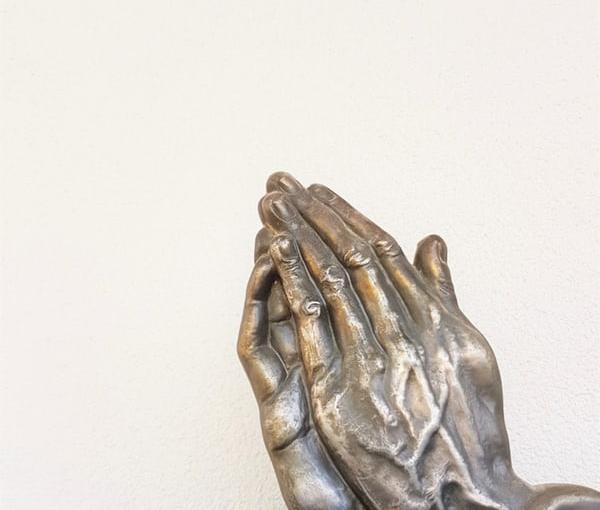Reflections on the Lord’s Prayer
Author: Tom Stiers
I was raised in an atmosphere of Methodist piety. Sunday evenings we had family prayers and Bible reading. At each evening meal my father said grace. At our United Methodist Church each Sunday we prayed the Lord’s Prayer. Our pastor told us that it was the model prayer. He said this prayer touches on all the basic needs of our lives: food and shelter, forgiveness, personal piety, and the advancement of the kingdom. I have always appreciated that interpretation.
We pray the Lord’s Prayer almost every Sunday at First Cong. Do you stop to think about its meaning? I don’t very often. When I do, I struggle with the opening phrase: “Our Father.” After attending a UU worship service where they prayed “Our Father/Mother”, I now follow that practice; it seems more complete to me.
That has led me to think more about the opening: “Our Father who art in Heaven.” Many of us no longer think of God being “up there” somewhere. For me God is around us and within me.
Occasionally we sing Brian Wren’s hymn “God of many names.” I find this hymn to be very helpful in my meditations. “God of many names, gathered into One, in your glory come and meet us, moving endlessly by becoming….” You can look it up in our New Century Hymnal. You might consider trying different prayer words over in your mind and thoughts and see how they feel to you.
Occasionally at First Cong we pray either the New Zealand version of the Lord’s Prayer or the one by John Philip Newell. The New Zealand prayer begins: “Eternal Spirit, Earth-maker, Pain-bearer, Life-giver, Source of all that is and that shall be, Father and Mother of us all, Loving God in whom is heaven.” Those words comfort me and reflect my theological understanding of God.
Consider the re-wording offered by John Philip Newell in the Celtic Christian tradition. It begins: “Ground of all being, Mother of Life, Father of the Universe – Your name is sacred, beyond speaking. May we know your presence, may your longings be our longings in heart and in action.” These words seem more personal and are very helpful words in my prayers for today’s world. The complete versions of these prayers can be easily found online.
I offer these thoughts as a way to open a discussion about the wording of the Lord’s Prayer. A traditional version is spoken in almost every Sunday. As we think more deeply about alternative meanings, we can see how it speaks to us a little differently each time we pray.

